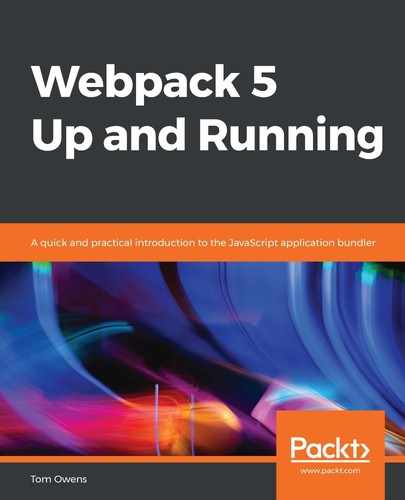An Application Programming Interface (API) is typically used for interfaces between remotely stationed programs, such as when a company offers partial access to their website's functionality as part of an integrated system through, say, a mobile app.
Webpack seeks to compile and optimize localized code, so knowing the difference between localized code and an external API is essential for operating the software.
Plugins and loaders are similar. A loader essentially instructs Webpack on how to handle specific tasks involved in more unusual programming languages and bundling. Loaders are often developed by the user community, rather than by in-house Webpack developers. Plugins, on the other hand, offer some of the processes that loaders don't currently offer and so are more general in their operation than loaders. A concise explanation of each feature with detailed examples will follow during the course of this chapter.
Webpack 5 offers developers a rich plugin interface. Most of the features within Webpack use this plugin interface, making Webpack quite flexible to use.
This chapter will explore plugins, loaders, and APIs, as well as the salience of each and how each feature plays its part in the operation of Webpack.
The topics discussed in this chapter are as follows:
- Loaders
- APIs
- Plugins
